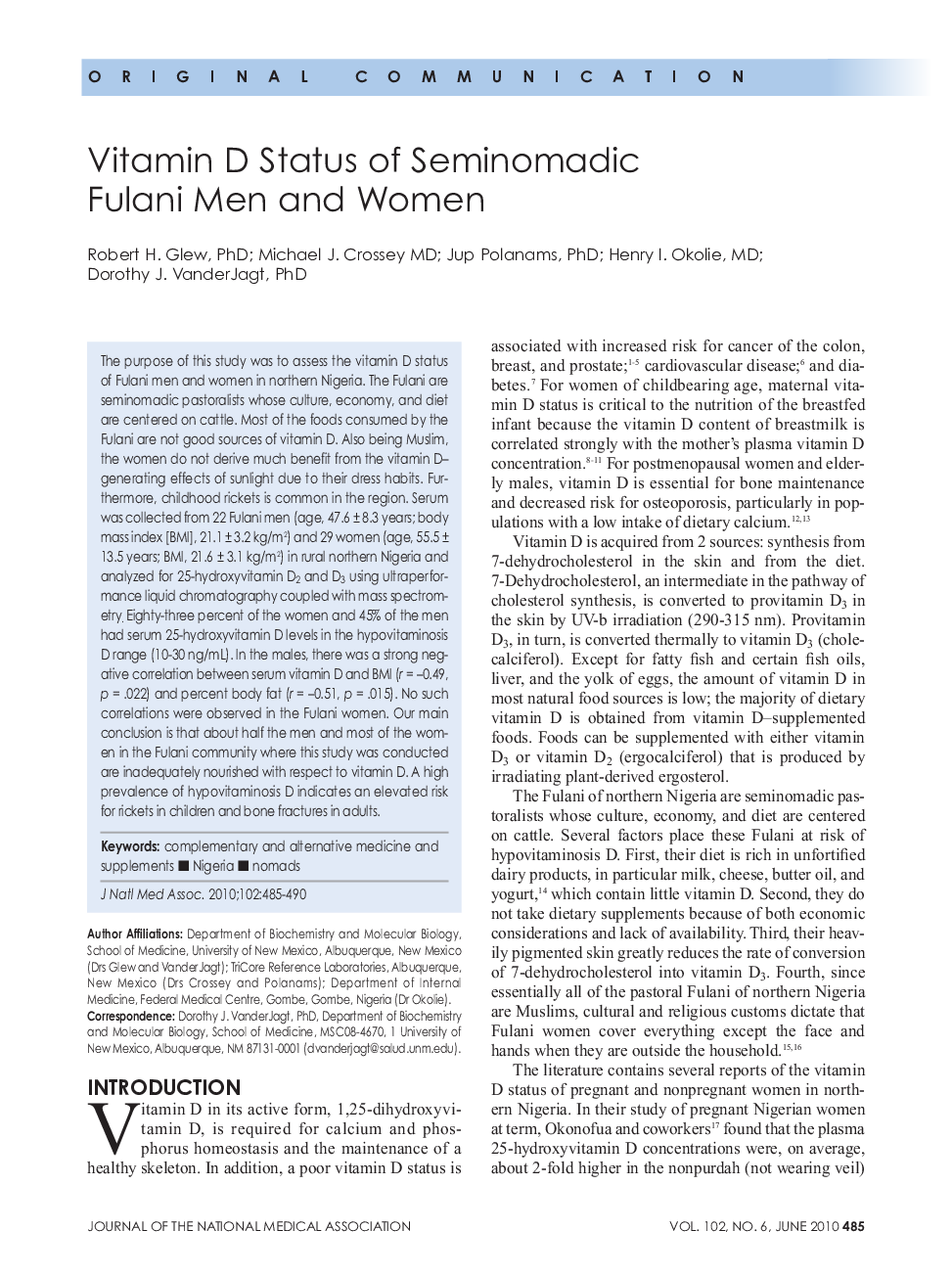| کد مقاله | کد نشریه | سال انتشار | مقاله انگلیسی | نسخه تمام متن |
|---|---|---|---|---|
| 4199645 | 1279336 | 2010 | 6 صفحه PDF | دانلود رایگان |
عنوان انگلیسی مقاله ISI
Vitamin D Status of Seminomadic Fulani Men and Women
دانلود مقاله + سفارش ترجمه
دانلود مقاله ISI انگلیسی
رایگان برای ایرانیان
موضوعات مرتبط
علوم پزشکی و سلامت
پزشکی و دندانپزشکی
سیاست های بهداشت و سلامت عمومی
پیش نمایش صفحه اول مقاله

چکیده انگلیسی
The purpose of this study was to assess the vitamin D status of Fulani men and women in northern Nigeria. The Fulani are seminomadic pastoralists whose culture, economy, and diet are centered on cattle. Most of the foods consumed by the Fulani are not good sources of vitamin D. Also being Muslim, the women do not derive much benefit from the vitamin D-generating effects of sunlight due to their dress habits. Furthermore, childhood rickets is common in the region. Serum was collected from 22 Fulani men (age, 47.6 ± 8.3 years; body mass index [BMI], 21.1 ± 3.2 kg/m2) and 29 women (age, 55.5 + 13.5 years; BMI, 21.6 ± 3.1 kg/m2) in rural northern Nigeria and analyzed for 25-hydroxyvitamin D2and D3using ultraperfor-mance liquid chromatography coupled with mass spectrometry. Eighty-three percent of the women and 45% of the men had serum 25-hydroxyvitamin D levels in the hypovitaminosis D range (10-30 ng/mL). In the males, there was a strong negative correlation between serum vitamin D and BMI (r = -0.49, p= .022) and percent body fat (r= -0.51, p= .015). No such correlations were observed in the Fulani women. Our main conclusion is that about half the men and most of the women in the Fulani community where this study was conducted are inadequately nourished with respect to vitamin D. A high prevalence of hypovitaminosis D indicates an elevated risk for rickets in children and bone fractures in adults.
ناشر
Database: Elsevier - ScienceDirect (ساینس دایرکت)
Journal: Journal of the National Medical Association - Volume 102, Issue 6, June 2010, Pages 485-490
Journal: Journal of the National Medical Association - Volume 102, Issue 6, June 2010, Pages 485-490
نویسندگان
Robert H. PhD, Michael J. MD, Jup PhD, Henry I. MD, Dorothy J. PhD,